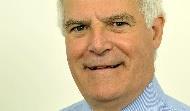On the last day of the old system, what lessons do a departing generation of NHS leaders they have for their successors? Nick Timmins, the former public policy editor of the Financial Times, spoke to them on behalf of the Nuffield Trust. HSJ presents the edited highlights

Dame Ruth Carnall, chief executive of NHS London since 2007
My advice to a successor would be to be really careful about compromising in the face of political pressure. I’ve done too much of that, and I wish I hadn’t.
Take south-east London. The original proposal, with a good amount of clinical support, was to tackle the whole of it. The Lewisham part was immensely controversial, and there was a lot of political and other pressure saying we did not need to do it. We gave in and put only Greenwich, Bromley and St Mary’s into the South London Healthcare Trust. Mortality dropped and their quality improved, but their financial position was a disaster. It didn’t deliver something that was viable in the long run and we ended up with the worst of all worlds.
‘The fragmentation will encourage problems to go up the system rather than to be managed down, which is the exact opposite of the intention’
Ruth Carnall
I sometimes think that rather than compromise, it would have been better to say: “We won’t do this at all because there is so little support for it.” Because when you only do half of it, everyone still hates it.
The worst thing about the NHS is the constant reorganisation.
I like to think that if Andrew Lansley had turned up and said: “This is what I want to achieve – GPs in the frame, transparency, choice for patients, a market,” that we could have thought about how to deliver what he wanted. It wasn’t in principle a long way from the direction of travel that we were going in anyway, certainly around quality, clinical leadership, patient involvement and transparency.
We would have more quickly got to integrated care by putting GPs in leadership positions, with us still here to support them, than we are going to do with them left in the isolated position they’re now going to be in. I’ve been to visit most clinical commissioning groups in London. There are some fantastic people there, with great ideas. But the capability and capacity they’ve got in terms of resources and support is woeful, frankly.
I think the reforms will cause conflict to go up the system. If you are sitting there in your CCG and you can’t agree with your local trust, where is the pressure to sort it out? So I think problems will go to the regional office of the commissioning board and then the board itself and the Trust Development Authority. The fragmentation will encourage problems to go up the system rather than to be managed down, which is the exact opposite of the intention.
There will be a lot of pressure to create more integrated care pathways for patients [but] the organisational structures that we’ve now got don’t facilitate any of that. I think the challenge will be creating effective means of working across the boundaries. So that’s about networks. But networks are weak organisations, [they are] great when everybody agrees. It’s difficult when they don’t because no one is in charge.
Andy McKeon was managing director, health, at the Audit Commission from 2003 to 2012

Don’t put your faith in incentives for the hospital sector. The ones we have got don’t really work.
After eight years of payment by results it’s hard to see that it has had any real impact, other than improving coding and maybe sharpening bits of financial management. That also goes, so far, for best practice tariffs. It’s hard to see what commissioning for quality and innovation framwork has done other than if we had simply concentrated on the quality standards. And I think that is probably true of the larger incentives that were introduced with the purchaser-provider split.
In most places the hospital service and the purchaser are probably doomed to work together. Therefore, affordability rather than incentives becomes a more critical factor in our cash-constrained system.
It is true that you can give purchasers a different set of tools to use. They can tender a service or something like that. They do that quite often in desperation, however, because it’s a very time consuming and long process to go through. And therefore, they can’t do that on any kind of scale.
This is not true in primary care, where clearly financial incentives impact directly on people’s pockets. People will do what they need to do in order to make their money – the quality and outcomes framework illustrated this.
The financial incentives on hospitals do not impact directly on the consultant’s pocket as they do for GPs.
But consultants are concerned about their service and its quality. Therefore, if there’s a failure, it’s a failure of the organisation, for whatever reason, to articulate sufficiently the impact of financial incentives on the services they are providing. That’s probably a failure of the way in which hospitals haven’t had to adapt their financing systems and the way in which they organise themselves.
There is some evidence that choice and competition does have an impact [on innovation and quality]. But you have to ask yourself whether that impact is sufficient to justify the effort that’s gone into producing it.
Where we’ve wanted to upgrade services or safety in a particular hospital, we’ve had more success in tackling those things directly than we have by trying to introduce choice and competition.
I wouldn’t scrap financial incentives or choice and competition. But I would think very carefully about… going for some other approaches such as clearer requirements on measurement, and transparency on outcomes and performance, providing more information publicly. That is, of course, grist for choice and competition. But the main effect will be on the providers themselves, on the consultants and clinicians as they see their results in the public domain.
Sophia Christie was chief executive of NHS Birmingham East and North from 2002 to 2012
The best thing [about leading a primary care trust] was having real accountability for the health, outcomes and experiences of a defined population. The worst thing was the invisibility of much of our most important work to the rest of the NHS.
I once said in a strategic health authority meeting: “I think it’s interesting you’ve never told me off about having a health status equal to Yemen in my infant mortality.” Apparently that’s far more acceptable than happening to have a hospital that can’t manage its own accident and emrgency.
‘We rant on about: “Why don’t the elderly do things the way that we think they ought to?” Well, they don’t think like us, for a start’
Sophia Christie
I do think there is a problem in the NHS being full of lovely, well meaning, highly paid, professional double graduates living on decent incomes. Increasingly, many of them have been educated in settings in which the only other people they speak to are other people who got four A stars at A‑level. Then we let them loose on the rest of the population.
Particularly the elderly, most of whom left school at 14, have had unbelievably challenging lives and grew up in a completely different culture. Then we rant on about: “Why don’t they do things the way that we think they ought to?” Well, because they don’t think like us, for a start.
Will the reforms succeed? Given their declared aims I suspect they have already failed. There is not much harnessing of the creativity of the population of GPs that I can see. But one bit that has survived is all the stuff around transparency and responsiveness to patients and the public. If we are able to maintain a critical mass of people really excited about that, it could make a very big difference.
If I had to make one major change [it would be to] ban any central top-down reorganisations. It is that old quote from Sir Roy Griffiths: “Reorganisation is the thing you absolutely should do, but only when everything else has failed.”
Robert Creighton was chief executive of Ealing PCT from 2002 to 2011
It became very difficult, over time, to see how the broader care system was going to be able to reduce the inexorable flow − for all sorts of good and bad reasons − [of patients] into hospital care.
That doesn’t mean it’s not the right policy intent. But after a number of years in which we said we were going to do demand management, and that meant fewer people would flow into Ealing Hospital or North West London or Imperial − well it never happened.
‘Even some of the worst-performing GPs were consistently sending me letters from patients telling me how wonderful they were’
This was partly because, however cynical you are about GPs, they do absorb a lot of pressure and, without very much better facilities in the community, GPs can’t absorb much more, and those facilities take a very long time to create.
I wish I’d know how incredibly hard it is to bring about change in primary care. It is obviously the part of the system that still needs to move into the 21st century, in places like Southall. I hadn’t appreciated just how few, or how weak, the levers would be.
One of the interesting questions is whether CCGs might do a better job than we were able to in sorting out the poorer performing GPs. If there is real leadership from innovative GPs, that could be an advantage. But it is not easy. Even some of the worst-performing GPs we had were consistently sending me letters from patients telling me how wonderful [they were].
Primary care did improve over the PCT’s nine years, if measured by access and availability, by the quality of facilities in some areas, by the range of services offered, by quality outcomes framework points, and by addressing – laboriously – the practice of the poorest individual practitioners.
But we were a long way from removing the inverse care law. That would have required many more incentives and penalties, with much greater investment of resources over a longer period. It does sometimes make me wonder whether we should not have more central control over general practice.
I do think having 33 PCTs in London was a real challenge to the [NHS’s] leadership capacity. In 2002 they made some shocking appointments and it took an awful long time for some organisations to recover. And that is a worry when we are going to have 211 CCGs.
Brian James was chief executive of the Rotherham Foundation Trust from 2004 to 2012
The most productive change in the NHS has been the elimination of waiting. The least productive has been the direction of travel over two decades with the market reforms. Payment by results and all of that is taking us to a point where small and medium hospitals will be seen as non-viable. They will be bankrupted by the market and more will be pulled into the big teaching hospitals.
But for Rotherham or Doncaster, that will mean Sheffield and that is going to mean a huge amount of travelling for poor people.
‘Am I optimistic about the reforms? No, I’m not. The last two years have been quite awful’
Brian James
You asked about me inviting in the Can Gerry Robinson Fix the NHS? TV series. Well, it was personally bruising. But the impact on, and benefit to, the organisation was considerable. I was a new chief executive at the time, having taken over a hospital that needed to change the way it was thinking. I saw Gerry as a way of helping us think about delivering high-quality care in a business-like way.
It had a cathartic effect. Within a year the situation had been transformed. Consultants, other clinicians, managers and staff agreed that what was shown on television was simply not acceptable. So it definitely moved things on.
Am I optimistic about the reforms? No, I’m not. The last two years have been quite awful. The rhetoric about no fundamental change from the incoming government followed by the biggest reorganisation we’ve ever seen. There has been, and there still is, huge uncertainty about the new system on a scale I’ve never seen in my 37 years in the service. It’s chaos, really.
And the £20bn savings is going to make things incredibly difficult over the next two years. It effectively means in my hospital that we would need to operate on £50million less than we had two years ago. I think something will have to give on that.
Dr Lucy Moore is the former chief executive of Whipps Cross University Hospital Trust

I didn’t want to leave the NHS − I felt I had more to offer − everybody said I had done a good job. But I didn’t manage to find a suitable role. Now I’m working for one of the “big four” [management consultants]. It does seem crazy, really. I’m one of many with expertise and experience leaving, when everyone says, “Oh, well there’s a real shortage of x, y and z.”
Part of the problem is that the NHS doesn’t operate its leadership development at scale. The NHS management training scheme is fantastic, but it is small scale. We describe it as a “National Health Service”, but as far as that sort of leadership training and succession planning is concerned, it’s not at all. I’ve been very struck by that in my new life, where [leadership development is] taken much more seriously.
And a linked effect is that when you get a trust that is really challenged, you tend not to get the best people there. They are all sitting in the big teaching trusts [where] there’s less risk to your future career.
Does NHS management have a bullying culture?
There’s quite a strong view that [NHS management is] very bullying, and that a lot of it comes from Sir David Nicholson. I take a different view. I hadn’t been at Whipps Cross very long when we went from a balanced financial position to minus £16m. In his brief time in London, I was summoned to see David Nicholson. He gave me a chance. He did that because there was a story around improving patient care and quality, as well as action being taken to turn the financial position around. These are high-profile roles, with a huge amount of responsibility invested in individuals. You have to be able to give as good as you get. Dr Lucy Moore
What comes down the line is very oppressive, and yes I would call it bullying. It is not overt. It is more subtle than that. Those higher up are under huge pressure to achieve political objectives and their careers are at risk if they do not achieve them. The NHS is very unforgiving if you are in somewhere that hits real problems. If you have been anywhere near somewhere like Mid Staffordshire, regardless of what role you may have played, the rest of the service almost conspires to shun you. The idea you can be a whistleblower without being finished is ridiculous. Those in influential positions will make sure you never get another job in the service. Brian James
I resist the idea the NHS has a bullying management culture. Of course there are some people who can be bullies and if you work at the top of the NHS and in the department it is very hard not to do what ministers tell you. So there is certainly some very tough performance management, and I’ve been on the receiving end of it. But I didn’t feel it was bullying. Robert Creighton
The full text of all these interviews – and others – can be found in the Nuffield Trust’s Changing of the guard: lessons for the new NHS from departing health leaders.
Nick Timmins was public policy editor at the Financial Times






























23 Readers' comments